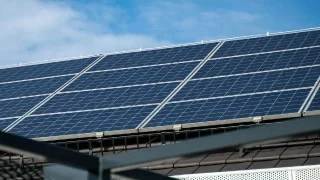

Submission to ERC0369 – Improving Workability of the Feedback Loop
The Centre for Independent Studies (CIS) appreciates the opportunity to provide a submission to the Australian Energy Market Commission.
The CIS is a leading independent public policy think tank in Australia. It has been a strong advocate for free markets and limited government for more than 40 years. The CIS is independent and non-partisan in both its funding and research, does no commissioned research nor takes any government money to support its public policy work.
We strenuously object to the proposed rule change, in particular allowing feedback loops to be based on an unscrutinised Draft ISP, which normalises and legitimises an approval process for crucial infrastructure investments that entirely circumvents public consultation on the proposed Optimal Development Path.
It amounts to giving TNSPs the opportunity to receive approval for adding billions of dollars to their regulated assets based on an AEMO system plan that has yet to be subject to any external scrutiny. It opens a window for collusion — or the perception of collusion — between AEMO and the TNSPs and dramatically decreases transparency.
The draft rule claims that it would promote ‘the efficient, timely, and consistent operation of the feedback loop in its role as a consumer safeguard’. We argue that the rule change is at the direct expense of the feedback loop’s efficacy as a consumer safeguard. The consequences of this loss of transparency and oversight have not been properly considered in any of the arguments made in support of the rule changes.
As per the guidelines for submissions, we want to clarify that we contest the adequacy of the criteria proposed for rule assessment, as there are no criteria that adequately consider the long-term financial interests of the consumer. We accept two criteria, and reject two, and propose that at least one criterion is missing. This will be clarified in the substantive document.
We also note that documents released under FOI confirm the AER and AEMO have had extensive consultations on how to advance specific projects, including HumeLink, through the feedback loop since May 2021. These consultations led to formal requests from AEMO to AER to accept the omission of mandated consultation on ISP Updates, in clear breach of the National Electricity Rules, in both 2021 and 2023. The AER responses, tacitly sanctioning the foreshadowed breach, are an unusual action for a regulator that has the function of enforcing the rules, specifically to investigate and take action to prevent breaches.
There has been no response as yet from the AER regarding an individual complaint about the foreshadowed rules breach requesting that the AER enforce the rules. A complaint directly to AEMO about the plan to update the ISP without consultation was met only with a request to participate in the Draft ISP consultation process — the very process which the ISP update and subsequent feedback loops for VNI West and HumeLink effectively subverted.
Given that this proposed rule change can effectively normalise and legitimise this practice — removing documents from scrutiny usually applied to pass feedback loops — it is especially important that the rule change is clearly demonstrated to be in the long-term interest of consumers, for whom the rules are written to protect. The appearance that the rule change is a post-hoc justification of coordinated and concealed efforts to advance projects outside of the rules would be detrimental to the confidence and trust placed in the institutions responsible for the energy system.
There appears to be no reasonable argument, or indeed any serious effort to mount an argument, in any of the previous reviews into this process that demonstrates that this rule change is in the interest of the consumer. Indeed, the 2022 Consumer Panel in its report on the Draft ISP made it clear that AEMO locking in decisions via a feedback loop before receiving stakeholder feedback on a Draft ISP (including its own) was a ‘significant weakness in the ISP framework’.[1] No reference to this appears in any of the supporting documents and arguments regarding the proposed rule change. We consider it essential that AEMC demonstrates in the making of the National Electricity Rules that they are resolved to consistently act in ‘the long-term interests of energy consumers’, as is claimed prominently in the AEMC’s description of its role.[2] We submit that changing the rules in such a way that so substantially degrades the transparency and oversight of some of the most important decisions in the energy transition (i.e., the addition of multi-billion dollar transmission projects to the regulated asset base) cannot possibly be consistent with the AEMC’s mandate or the National Electricity Objective.
Following our address of the suitability of the assessment criteria, our submission will address the original and underlying rationale behind the request to improve feedback loop ‘workability’, in particular addressing:
- The difference between ‘new information’ and ‘inputs and assumptions’ in the National Electricity Rules and Integrated System Plan, and why they must be treated differently, and need not be updated simultaneously,
- The deep problem associated with the current treating of government policies as assumptions or inputs to the ISP,
- The claimed misalignment between the latest IASR and latest ISP in the RIT-T,
- The deep problem associated with the overfitting in the ISP modelling, and the consequent sensitivity to small changes in assumptions and inputs, and
- The significance of distinct consultation on the Draft ISP itself in specifying the ODP, as opposed to the IASR and Methodology, highlighting AEMO’s capacity and willingness to influence the ODP in a Draft ISP even with fixed inputs and methodology.
Our conclusion is that the premise that there is a problem with the workability of the feedback loop is, and always was, poorly founded. Increased efficiency, transparency and accountability could be achieved quite simply with trivial changes to the rules, and possibly only with clarification of interpretation of existing rules (for instance, through a Guidance Note from the AER).
We will then conclude by briefly addressing the specific arguments laid out in favour of the rule change in the Rule Change Request from Minister Chris Bowen, which the Draft Ruling proposes accepting.
Yours sincerely
Aidan Morrison
Director, Centre for Independent Studies Energy Program
[1] https://aemo.com.au/-/media/files/major-publications/isp/2022/isp-consumer-panel-report-on-draft-2022-isp.pdf p 44

